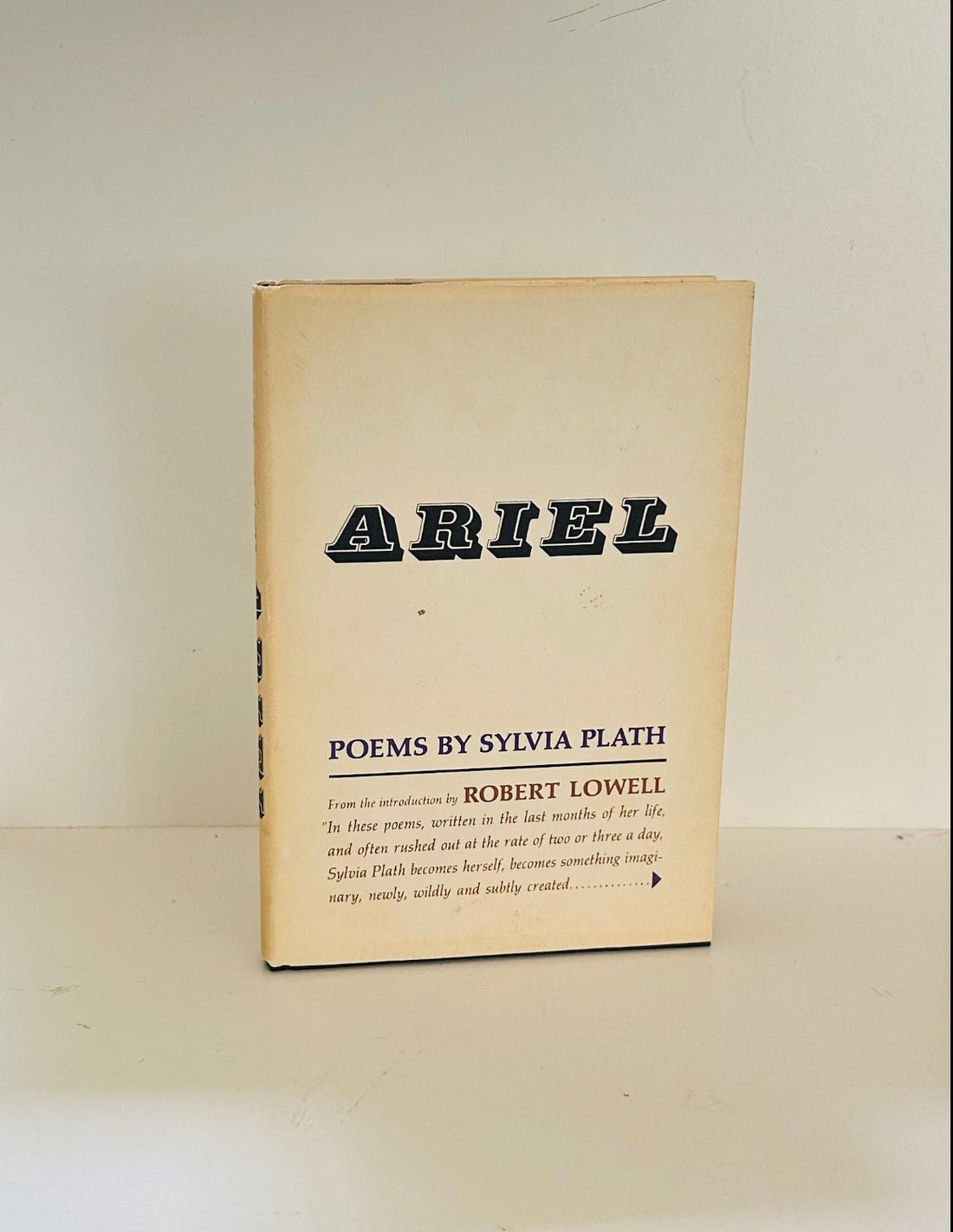
The Literary Connection Between Sylvia Plath and Anne Sexton: A Boston Poetic Bond
Compartir
The literary world has often celebrated the genius of Sylvia Plath and Anne Sexton, two of the most iconic poets of the 20th century. These women, who began their relationship in the halls of Boston University, are remembered not only for their searing and confessional poetry but also for their shared struggles, personal ambitions, and tumultuous lives. The connection between Plath and Sexton is a story of mutual admiration, competition, and a hauntingly parallel journey that saw both win Pulitzer Prizes posthumously. This post will explore their relationship, their most celebrated works, and how their time at Boston University shaped their art and friendship.
Meeting at Boston University
In the 1950's, Boston was a hub of literary activity. It was here, in Robert Lowell's famous poetry class at Boston University, that Sylvia Plath and Anne Sexton first crossed paths. Both poets were enrolled in Lowell's class during the late 1950's, and it was this setting that would ignite a powerful, albeit complicated, friendship.
Plath, who had already been recognized as a promising writer during her time at Smith College and Cambridge University, was refining her craft. Sexton, who came to poetry later in life after a series of mental health crises, had just begun to discover her voice. In Lowell's class, these two women bonded over their shared themes of mental illness, motherhood, and societal expectations for women. According to literary scholars, the pair would often meet for drinks after class, discussing their work, their inner demons, and their experiences as women in a male-dominated literary world.
Their Best Works: A Confessional Revelation
Sylvia Plath and Anne Sexton are often categorized as confessional poets, a style that emerged in the mid-20th century and focused on personal, often painful, subject matter. Their poetry was a revelation, offering an unflinching look into the private lives and emotional states of the authors. While both were confessional poets, their approaches and styles were distinct, yet complementary.
Sylvia Plath: The Tragic Brilliance of Ariel
Plath’s poetry is perhaps best represented in her seminal collection Ariel (1965), published posthumously. Ariel is a masterclass in emotional depth and lyrical intensity. The poems in this collection, including the iconic "Daddy" and "Lady Lazarus," explore themes of death, rebirth, and patriarchal oppression. Plath’s imagery is stark and haunting, often laced with a visceral quality that speaks to her inner turmoil.
"Daddy," for example, has been widely analyzed for its intense portrayal of Plath’s complex relationship with her deceased father, while "Lady Lazarus" showcases her struggle with mental illness and her attempts at reclaiming power through the metaphor of resurrection. Critics have hailed Ariel as one of the most important poetry collections of the 20th century, its influence reverberating throughout the literary world.
Anne Sexton: The Raw Intimacy of Live or Die
Sexton’s poetry, while equally raw and confessional, often takes on a more conversational tone. Her Pulitzer Prize-winning collection, Live or Die (1966), is a deeply personal exploration of her battle with depression, suicidal thoughts, and her efforts to reconcile these feelings with her role as a mother and a woman.
Poems like "Wanting to Die" and "Her Kind" reveal Sexton’s profound sense of alienation and her ambivalence towards life and death. "Her Kind," in particular, stands out as a feminist declaration, as Sexton aligns herself with the witch-like figure—a woman out of place, rejected by society, yet resolute in her identity. Sexton’s work often teeters between dark humor and despair, making her voice uniquely recognizable in the confessional poetry movement.
The Pulitzer Prize: A Posthumous Honor
Both Sylvia Plath and Anne Sexton were posthumously awarded the Pulitzer Prize for Poetry, cementing their legacies as two of the most important poets of their generation. The irony of this accolade is not lost on readers and critics, as neither poet lived to see their work fully appreciated.
Plath was awarded the Pulitzer Prize in 1982 for The Collected Poems, nearly two decades after her tragic death in 1963. The collection includes poems that span her career, showcasing her evolution as a poet and her growing mastery over form and content. The posthumous nature of this award underscores the tragedy of her untimely death and the profound loss to the literary world.
Sexton, on the other hand, won the Pulitzer Prize in 1967 for Live or Die, just a few years before her own suicide in 1974. While Sexton was alive to receive the honor, the themes of death and mental illness that permeate her work make the award feel similarly bittersweet. Sexton’s work is often seen as a cry for help, and the Pulitzer served as recognition of her fearless exploration of taboo subjects like mental illness and suicide.
The Complex Relationship Between Plath and Sexton
The friendship between Sylvia Plath and Anne Sexton has been the subject of much literary analysis, particularly because of the striking similarities in their lives and deaths. Both poets struggled with mental illness, both attempted suicide multiple times, and both ultimately ended their lives by suicide—Plath in 1963 and Sexton in 1974. Their friendship was marked by deep conversations about these struggles, and they shared a mutual understanding of the pain and isolation that came with their creative genius.
However, their relationship was also competitive. While they admired each other's work, they were acutely aware of the limited space for women in the literary canon. Plath, in particular, felt overshadowed by Sexton at times, especially as Sexton's career blossomed earlier. Despite these tensions, the two poets found solace in each other’s company, both understanding the emotional and psychological toll their writing took on them.
The Legacy of Plath and Sexton
Sylvia Plath and Anne Sexton left behind a legacy that has inspired generations of poets, particularly women who have found in their works a voice for their own struggles and emotions. Their writings broke down barriers around mental illness, femininity, and the expectations placed on women by society. Both poets are now regarded as pioneers of confessional poetry, their works continuing to resonate with readers across the world.
While their lives ended in tragedy, their contributions to literature are monumental. Both Plath and Sexton dared to write about topics that were often considered too personal or too taboo for poetry, and in doing so, they opened up new possibilities for the art form. Their shared history at Boston University was the beginning of a powerful, if short-lived, friendship—one that would leave an indelible mark on the world of poetry.
Conclusion
The bond between Sylvia Plath and Anne Sexton was one forged in the crucible of shared experience—both as women navigating a male-dominated literary scene and as individuals grappling with profound personal demons. Their friendship, while marked by competition and complexity, also provided a vital connection for two poets who revolutionized the confessional genre. Their best works, Ariel and Live or Die, remain cornerstones of modern poetry, their influence still felt decades after their deaths. In a world that often didn’t understand them, Plath and Sexton understood each other, and that mutual understanding is perhaps the most poignant part of their legacy.
References
- Axelrod, Steven Gould. “Sylvia Plath: The Wound and the Cure of Words.” Poetry Foundation, 1988.
- Uroff, Margaret Dickie. "Sylvia Plath and Confessional Poetry." Twentieth Century Literature, vol. 22, no. 3, 1976.
- Kumin, Maxine. "Anne Sexton: The Voice of the Poet." The New York Times, April 1974.
- Middlebrook, Diane Wood. Anne Sexton: A Biography. Houghton Mifflin, 1991.
- Jamison, Kay Redfield. Touched with Fire: Manic-Depressive Illness and the Artistic Temperament. Simon & Schuster, 1996.
- Bloom, Harold, ed. Sylvia Plath: Comprehensive Research and Study Guide. Chelsea House, 1999.
